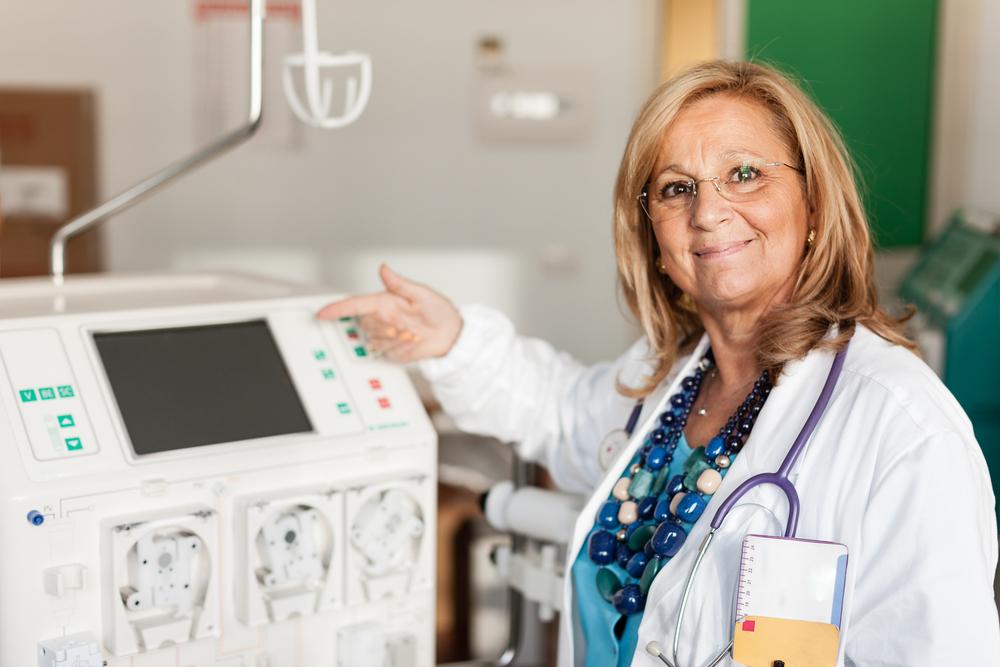
Screening and Treating Kidney Cancer
As the name indicates, kidney cancer starts in the two bean-shaped organs that are located just behind the abdominal organs. The renal cell carcinoma is a very common type of kidney cancer in adults. In children, the common type of kidney cancer is termed as Wilms’ tumor. However, there are some uncommon types of kidney cancers which may also occur.
What are the different stages of kidney cancer?
- Stage I: This is the first stage of kidney cancer, where the tumor is about 2.75 inches in diameter and is confined to either kidney.
- Stage II: The second stage of kidney cancer tumor is a little larger compared to the stage I tumor. It still remains confined to one kidney.
- Stage III: The tumor at this stage extends beyond the organ, and may even spread to surrounding tissues or lymph nodes.
- Stage IV: At this stage, the kidney cancer starts spreading outside the kidney, to the multiple lymph nodes and other body parts like lungs, liver, brain etc.
What are the causes of renal cancer?
Well, the causes of renal cancer are not quite clear. However, the most common type of kidney cancer occurs due to several risk factors. According to the doctors, kidney cancer starts to develop when some of the kidney cells begin acquiring mutations within their DNA. These mutations enhance cell growth and make these cells divide rapidly. The accumulation of abnormal cells begins to form a tumor that can further extend beyond your kidney. Some of these cells can even break off and start spreading to other distant parts of the human body.
What are the risk factors for kidney cancer?
The common risk factors that are likely to cause kidney cancer are:
- Old age: Elderly people are more at the risk of kidney cancer.
- Obesity: Being overweight puts a person at a higher risk of developing kidney cancer.
- Smoking: People who smoke heavily are also at a greater risk of kidney cancer compared to non-smokers.
- High blood pressure (or Hypertension): Due to high blood pressure, the chances of kidney cancer increase.
- Treatment for kidney failure: A patient receiving long-term dialysis for treating chronic kidney failure is vulnerable to kidney cancer.
- Family history: People with a strong family history of kidney cancer are at a higher risk of developing kidney cancer.
- Exposure to certain chemical substances like cadmium or certain herbicides, at some workplaces, may increase the chances of kidney cancer in some people.
How to diagnose kidney cancer?
- Urine and blood tests: Simple urine and blood tests are the easiest way for your doctor to determine the signs and symptoms of kidney cancer.
- Imaging tests: Certain imaging tests, such as ultrasound, magnetic resonance imaging (MRI) or computerized tomography (CT) scan, can help diagnose kidney cancer.
- Biopsy: By removing a small kidney tissue for biopsy testing.
What is the treatment for kidney cancer?
Local treatments
It is the treatment of the tumor on a particular organ, without affecting other body parts. Some local kidney cancer treatments include:
- Surgery
- Radiation therapy
- Ablation and other local kidney cancer treatment
- Active surveillance
Systemic treatment
This procedure of kidney cancer treatment is done using oral drugs. This treatment uses different types of drugs for treatment, depending on the type of kidney cancer. Some common types of systemic treatments are:
- Targeted therapies
- Immunotherapy
- Chemotherapy
What is kidney cancer screening?
Statistically, the problem of kidney cancer is less common in our country compared to other types of cancers. To maintain your regular health and wellness, it is important to visit your doctor and follow up certain kidney cancer screening examinations and programs for prevention.
To avoid the risk of kidney cancer, we recommend you to:
- Exercise regularly
- Quit tobacco use
- Maintain your BMI (Body Mass Index)
- Follow a low-fat diet


